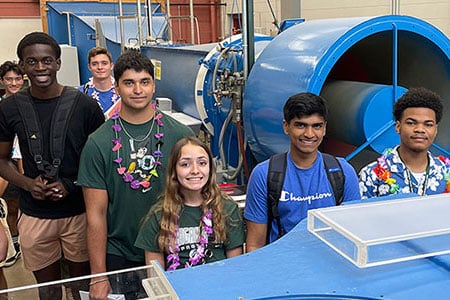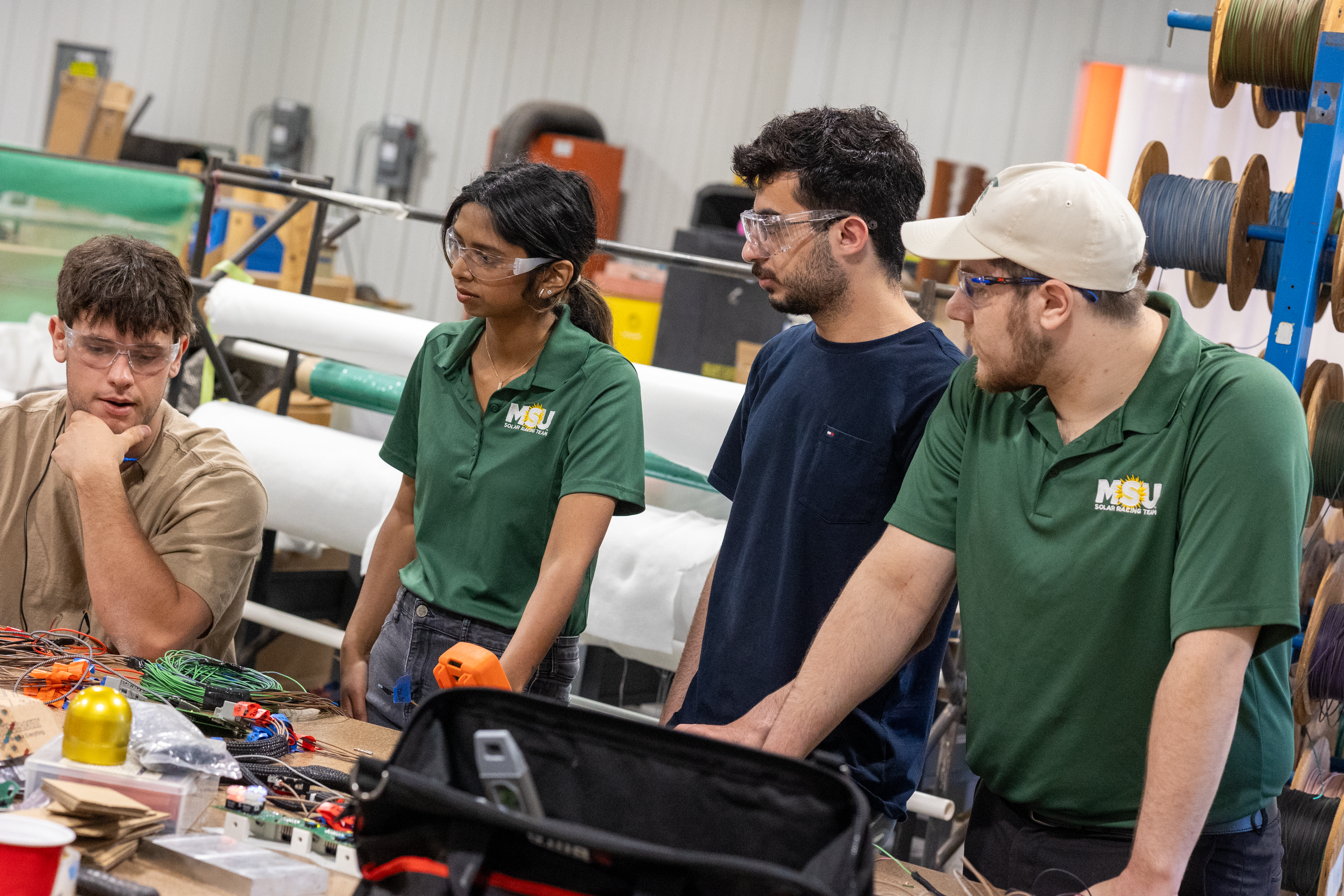Summer 2025
May 12, 2025–Aug. 15, 2025
3 Semester credit hours
Check out the academic calendar for details
R Mark Worden
(517) 353-9015
worden@msu.edu
Department of Chemical Engineering and Materials Science
Engineering Building, Room 2100
428 S. Shaw Ln
Michigan State University
East Lansing, MI 48824-1226
FAX: (517) 432-1105
Math through calculus, physics, physical and organic chemistry. Portions of the course involve differential equations, including partial differential equations, but solution of these equations is not emphasized. A course in differential equations is helpful but not required.
ChE 804 is not a prerequisite for ChE 805. Sufficient background is provided in ChE 805 that the courses can be taken independently or in the reverse order. Both ChE 804 and ChE 805 are prerequisites for ChE 806.
The course textbook is Unit Operations of Chemical Engineering (Seventh Edition) by McCabe, Smith, and Harriott, McGraw-Hill, 2005 (ISBN 0-07-284823-5). A printed version of the book is required because quizzes are open book, and electronic devices other than a simple calculator cannot be used.
Chemical Engineer's Handbook by Perry and Chilton, McGraw-Hill is a useful reference book. However, most students do not purchase this book for the course.
The course objectives are to introduce fundamentals of transport and separation processes. To develop competence to analyze and design chemical engineering systems based on principles of momentum, energy and mass transfer.
Topics covered in ChE 805 include dimensional analysis; laminar and turbulent flow; fluid friction; macroscopic mass, mechanical and momentum balances; microscopic (shell) mass and momentum balances; design of flow systems; steady-state and unsteady-state heat conduction, heat-transfer coefficients for forced and natural convection, condensation, and boiling; radiation heat transfer; design of heat exchangers; mass transfer by diffusion and convection; analogies between momentum, heat, and mass transfer; absorption, stripping, and extraction in packed columns and stagewise operations; binary and multicomponent distillation; extraction involving partially miscible fluids.
COURSE CERTIFICATE: Students earning a 3.0/4.0 are awarded a course certificate titled "Foundations of Chemical Engineering II: Course Certificate in Fluid Flow, Heat Transfer and Separations." No designation appears on the MSU transcript for the course certificate.
Homework: Homework assignments are given approximately weekly. Problems are collected and graded.
Examinations: Quizzes are given approximately every two weeks. There is a comprehensive final exam. A scientific calculator with trigonometric functions, logarithms, etc. is required. Graphing and programmable calculators are NOT permitted. No computers, tablets, cell phones, communication electronics, photography or internet browsing are permitted during quizzes/exams.
Computer Facilities: Internet access is required to view the streaming video movies. A computer is also recommended for homework calculations (e.g. spreadsheet calculations).
Laboratory: None
Project: None
- Laminar and turbulent flow
- Macroscopic mass and mechanical energy balances
- Macroscopic mechanical energy and momentum balances
- Calculation of drag forces and friction losses; dimensional analysis
- Pumping; design of flow systems
- Microscopic (shell) balances
- Applications of microscopic balances
- Fourier's Law; steady-state conduction
- Unsteady-state conduction; shell balances
- Convective heat transfer
- Design of heat-transfer equipment
- Radiant heat transfer
- Mass balances for stagewise separations
- McCabe-Thiele method
- Multicomponent distillation
- Liquid-liquid extraction
- Fick's Law; transport analogies
- Mass balances for differential separations
- Design of absorption columns
ChE 805 is the second in a two-course sequence on chemical engineering principles for non chemical engineers. This sequence was developed at Michigan State University to provide a distance-learning option for continuing-ed students as well as students wishing to pursue a graduate degree in chemical engineering. Topics covered in ChE 805 include dimensional analysis; laminar and turbulent flow; fluid friction; macroscopic mass, mechanical and momentum balances; microscopic (shell) mass and momentum balances; design of flow systems; steady-state and unsteady-state heat conduction, heat-transfer coefficients for forced and natural convection, condensation, and boiling; radiation heat transfer; design of heat exchangers; mass transfer by diffusion and convection; analogies between momentum, heat, and mass transfer; absorption, stripping, and extraction in packed columns and stagewise operations; binary and multicomponent distillation; extraction involving partially miscible fluids. For Topical Outline and Lesson List reach out to R Mark Worden at worden@egr.msu.edu
For more information, see the Enrollment Process page.
The three courses ChE 804, ChE 805, and ChE 806 constitute a transcriptable, MSU Graduate Certificate Program. Either ChE 804 or ChE 805 can be taken first, but both courses are prerequisites for ChE 806. The goal of this Graduate Certificate Program is to provide non-chemical engineers with a credential showing they have been trained in the foundational principles and calculations of chemical engineering. Students earning at a grade of at least 3.0/4.0 in all three courses are awarded an MSU Graduate Certificate credential titled "Foundations in Chemical Engineering" on their transcripts.





